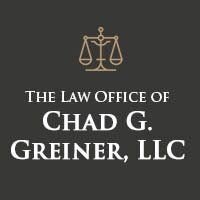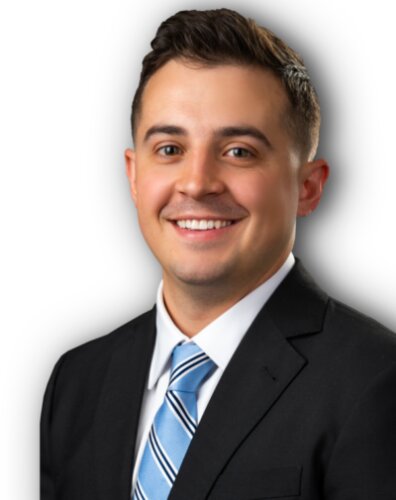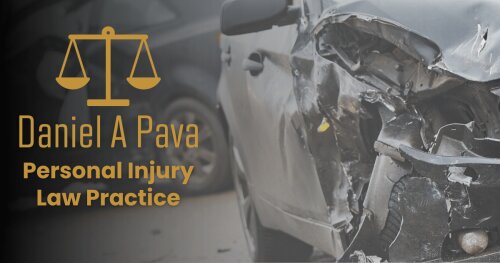Best Sexual Abuse Lawyers in Georgia
Share your needs with us, get contacted by law firms.
Free. Takes 2 min.
Or refine your search by selecting a city:
List of the best lawyers in Georgia, United States
About Sexual Abuse Law in Georgia, United States
Sexual abuse in Georgia refers to unlawful non-consensual sexual contact or behavior that is forced upon another individual. This can involve sexual assault, molestation, rape, statutory rape, and sexual exploitation. Georgia law treats sexual abuse as a serious criminal offense with strict penalties for perpetrators. These laws are meant to protect victims and to hold offenders accountable. Sexual abuse encompasses a wide range of acts, from unwanted touching to more severe offenses, regardless of the relationship between parties involved.
Why You May Need a Lawyer
There are several situations where someone facing sexual abuse issues may need the help of a qualified attorney:
- If you are a victim seeking protection, justice, or compensation for damages.
- If you have been accused of sexual abuse and need to defend your rights in criminal court.
- If you are a parent or guardian of a minor who has suffered sexual abuse.
- If you are involved in a family law or custody dispute involving allegations of sexual abuse.
- If you are seeking to file a civil lawsuit against an institution or individual responsible for sexual abuse.
- If you need guidance navigating the complexities of reporting, investigations, or the criminal justice process.
Legal professionals can help victims understand their rights, pursue protection orders, seek compensation, and ensure that perpetrators are held accountable. Those accused can receive proper legal defense, preserve their rights, and work toward a fair outcome.
Local Laws Overview
Georgia has comprehensive laws regarding sexual abuse. The state strictly defines and punishes a variety of offenses:
- Sexual Assault and Rape: Rape involves sexual intercourse with force or against the victim’s will. Sexual assault can include unwanted sexual touching and similar acts.
- Statutory Rape: Georgia law sets the age of consent at 16 years. Sexual activity with a person under 16 is considered statutory rape, even if the minor consents.
- Child Molestation and Exploitation: Any immoral or indecent act to or in the presence of a child under 16 is considered child molestation, with severe penalties. Exploitation includes acts such as producing or possessing child pornography.
- Sexual Battery: This involves intentionally making physical contact with another's intimate parts without consent.
- Reporting Requirements: Certain professionals, such as teachers and healthcare providers, are mandatory reporters and must report suspected child abuse.
- Protective Orders: Victims may seek temporary or permanent protection from perpetrators through the courts.
- Criminal and Civil Remedies: Prosecution of offenders is handled by the state, but victims can also pursue civil actions to recover damages.
Convictions for sexual abuse can result in imprisonment, mandatory registration as a sex offender, financial penalties, and lasting impacts on personal and professional lives.
Frequently Asked Questions
What acts are considered sexual abuse in Georgia?
Sexual abuse includes any sexual act committed against another individual without consent. This may involve unwanted touching, sexual assault, rape, child molestation, exploitation, and statutory rape.
What should I do if I am a victim of sexual abuse?
If possible, go to a safe place and seek medical attention immediately. Report the incident to local law enforcement or a trusted individual. Preserve any evidence and consider contacting a sexual abuse hotline or advocacy group for support.
How long do I have to report sexual abuse in Georgia?
There are statutes of limitations for criminal and civil cases. For many sexual abuse crimes, criminal cases must be filed within a certain number of years after the offense or after the victim turns 18. However, some serious offenses, like rape, may have no time limit for prosecution. Civil deadlines may also vary. Consult a legal professional for precise information regarding your situation.
Who must report suspected child sexual abuse?
Teachers, doctors, counselors, and other professionals who work with children are required by law to report any suspected child sexual abuse to the appropriate authorities.
Can I get a protective order against my abuser?
Yes. Victims can apply for a temporary or permanent protective order through the courts to prevent further contact or abuse from the perpetrator.
What if I am falsely accused of sexual abuse?
If you are falsely accused, it is important to seek immediate legal counsel. An attorney can help protect your rights, gather evidence, and build a defense.
What are the penalties for sexual abuse convictions in Georgia?
Penalties vary based on the crime and circumstances but can include long prison sentences, fines, probation, and mandatory registration as a sex offender.
Is consent a valid defense in sexual abuse cases?
Consent may be a defense in some cases involving adults, but not in cases involving minors under the age of consent, individuals unable to consent, or where force, intimidation, or coercion was used.
Can I sue my abuser in civil court?
Yes. Victims of sexual abuse in Georgia may file a civil lawsuit for damages suffered as a result of the abuse, including emotional distress, medical costs, and other damages.
Are support services available for victims?
Numerous organizations in Georgia provide counseling, shelter, legal assistance, and crisis support for victims of sexual abuse.
Additional Resources
If you or someone you know needs help regarding sexual abuse issues in Georgia, the following resources may be helpful:
- Georgia Department of Human Services - Division of Family & Children Services (DFCS): For reporting child abuse and accessing victim services.
- Georgia Network to End Sexual Assault (GNESA): Advocacy and support for victims of sexual violence.
- RAINN (Rape, Abuse & Incest National Network): National hotline and local referrals for counseling and support.
- Georgia Legal Services Program: Free legal help for eligible individuals in need of advice or representation.
- Local law enforcement agencies and hospitals: Emergency assistance and reporting.
Next Steps
If you need legal assistance with a sexual abuse matter in Georgia, consider taking these steps:
- Ensure your immediate safety and seek medical care if needed.
- Report the incident to law enforcement or child protective services, if appropriate.
- Gather documentation, such as medical records, messages, or witness information.
- Contact a qualified legal professional to discuss your rights, obligations, and the best course of action for your situation.
- Seek emotional or psychological support through crisis centers or victim advocacy groups.
- Follow through with recommended legal or therapeutic steps to protect your wellbeing and interests.
Navigating sexual abuse cases can be difficult. Legal professionals and advocacy organizations can provide guidance, support, and representation to help you achieve the best possible outcome.
Lawzana helps you find the best lawyers and law firms in Georgia through a curated and pre-screened list of qualified legal professionals. Our platform offers rankings and detailed profiles of attorneys and law firms, allowing you to compare based on practice areas, including Sexual Abuse, experience, and client feedback.
Each profile includes a description of the firm's areas of practice, client reviews, team members and partners, year of establishment, spoken languages, office locations, contact information, social media presence, and any published articles or resources. Most firms on our platform speak English and are experienced in both local and international legal matters.
Get a quote from top-rated law firms in Georgia, United States — quickly, securely, and without unnecessary hassle.
Disclaimer:
The information provided on this page is for general informational purposes only and does not constitute legal advice. While we strive to ensure the accuracy and relevance of the content, legal information may change over time, and interpretations of the law can vary. You should always consult with a qualified legal professional for advice specific to your situation.
We disclaim all liability for actions taken or not taken based on the content of this page. If you believe any information is incorrect or outdated, please contact us, and we will review and update it where appropriate.
Browse sexual abuse law firms by city in Georgia
Refine your search by selecting a city.















